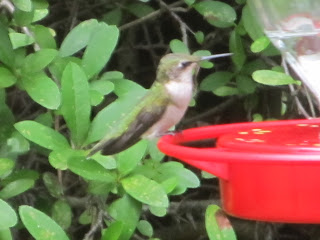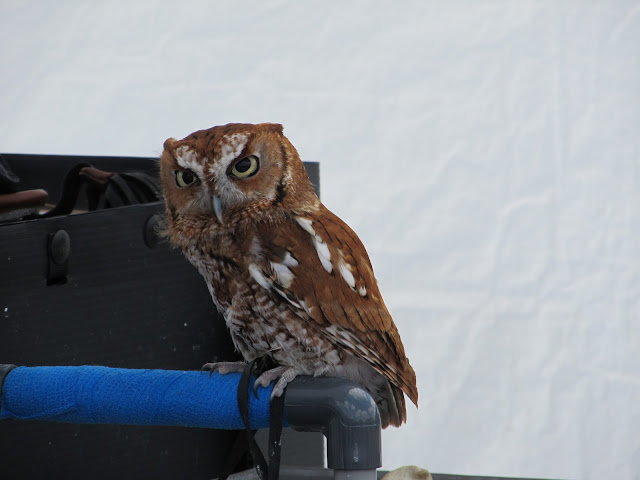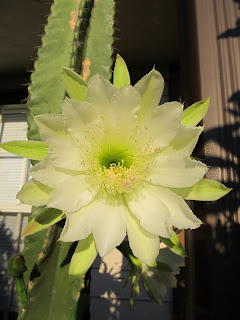I have been trying to get my husband to write a guest post on my blog and he keeps promising me that he will, but in the meantime... here is a guest post from our son, Christopher! Take it away, son... Good Day. Son, shine!
Hello All!
I hope that this short post will live up to the beautiful and varied topics that my mother covers.
As you well know by now, my mother loves music deeply and instilled this same deep passion in me as a boy. At the age of eight, I discovered the music of The Beatles (or at least that's the first time I remember truly
listening to them). My parents bought me most of their CDs as well as a small boombox-esque stereo to play them on. I listened to them voraciously, imbibing their music much like my peers were gorging themselves on loud, obnoxious cartoons on Nickelodeon.
I vividly remember listening to
A Hard Day's Night with my mom and a friend on the way to a second-grade birthday party. I asked my friend if he had ever heard of The Beatles. He replied: "Yeah, I love them!" He had never discussed this with me before, so I was surprised, but mom kept on driving and I left it at that. When we arrived at the party, the friends who were already there were singing along to The Troggs's classic "Wild Thing," although at the time I didn't know who it was by, and I'm sure the people at the party that day still don't know. After we got the salutations out of the way, I proclaimed that we too had listened to some great music and broke out into "A Hard Day's Night." Silence reigned. My friend who had ridden in the car with me, broke out into laughter: "I don't know who The Beatles are! I've never even heard of them!"
I took this slight with as much good humor as an eight-year-old can and continued to enjoy myself at the party. But I've never forgotten this unimportant incident. Fourteen years have passed since then, but my passion for The Beatles has never waned. While uninitiated people on Twitter responded to Paul McCartney's performance at the 2012 Grammys with disdain and ignorance, "Who's the old guy, #imanidiotandidontknowgoodmusicwhenihearit, etc," I blatantly trumpet my love for The Beatles and try to convert the ignorant to their cause of beauty, love, and transcendence. I rediscovered them fully and completely in high school, just when I needed cultural guidance (which was thin on the ground at school, although rife at home), and my love for them has never abated. No band will ever stumble upon the perfect equation of timing, talent, charisma, and intelligence that The Beatles did.
In terms of The Beatles timing, my mother and many of you, her readers, could probably say more about the importance of The Beatles in America in the 60s. I wish I could say more, but I cannot. Because of this, I will discuss something that I do have knowledge of: their music, and specifically the avalanche of great music that was written and released during the summer of 1966.
Revolver, to me, is the greatest Beatles album. Each song flows together seamlessly and features the sharpest production, instrumentation, and arrangement ever seen on any album, ever (at this point). All of the songs were written in 1966, and some of them were written in the "particularly glorious summer of '66" (Macdonald). One of these songs was "Good Day Sunshine," a beautifully breezy number which features an inspired yet understated vocal from Paul (the most musically gifted Beatle), a woozy, honky-tonkish piano solo from the Fifth Beatle (in my opinion), their producer George Martin, and smooth, pleasant lyrics: "I'm in love and it's a sunny day." This song typifies much of The Beatles's appeal. Ian Macdonald, in his extensive and thoroughly fascinating "Revolution In The Head," agrees saying: " 'Good Day Sunshine' displays The Beatles at their effortless best."
Many other classic songs were written during this beautiful summer of '66. The Beatles's main songwriting rivals Keith Richards and Mick Jagger (it was no rivalry really, the four of them got along famously and Mick and Keith knew they were nothing compared to the titanic talents of Lennon and McCartney), responded darkly to the beauty surrounding them, penning one of their best tunes, "Paint It, Black." Donovan Leitch, who would later teach John, Paul, and George how to play finger style guitar during their sojourn to Marrakesh to study under Maharishi Maresh Yogi, added one of his best known songs to the list, the whimsical "Sunshine Superman." The Kinks, another tremendously talented and trailblazing British Invasion band, chimed in with the unsettling "Sunny Afternoon." The Lovin' Spoonful, the only American band on this list, were so affected by this summer (as many Americans continue to be obsessed by the summer and its possibilities of freedom and release from the humdrum machinations of daily life) that they wrote two songs - one positive "Daydream," and one negative "Summer In The City."
All of these songs are imbued with the sometimes stifling, sometimes beautiful dichotomy of summertime. Growing up in Georgia provided me with both sides of this unforgiving coin - the intense heat was usually coupled with freedom from responsibility (of which there was never much to go around anyways) and idyllic days of playing outside until my shirts were held together by nothing but dirt and sweat.
The constant throughout summertime for me, and for many, is the role music plays. With this summer coming to a close and my final year of college looming large on the horizon, I remember back through my myriad summers and think of all the music and joy that I have had the pleasure to be a part of. Nothing will match the halcyon days of my early youth (which is a shared characteristic for many people, I'm sure), but because of the music of The Beatles and the thrumming energy that summer inspires in everyone, the beauty of an endless summer will forever be in our dreams. Not to mention our "Daydreams."
P.S. - Thank you for reading this and supporting my mother, a more wonderful mom than the world has ever known. She puts a lot of time and feeling into her posts, so keep loving, keep reading, and keep breathing!
Citations from:
Macdonald, Ian.
Revolution In The Head. 2008.



























































